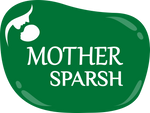
8 Unbelievable Baby Care Myths Busted
Becoming a parent is one of the most transformative experiences. Right from the time you announce the arrival of your little one, advice starts pouring in from every direction- friends, family, and acquaintances.
While some of the advice is grounded in wisdom, a surprising amount of it is carved deep into outdated beliefs and myths.
"Don't pick your baby too much; you'll spoil them!" "Rubbing alcohol can break fever instantly!" "Feeding baby solid foods at an early age will help them sleep through the night!" These are some of the common old-age claims that have been whispered from generation to generation, thereby fueling stress and confusion for new parents.
But here the real question is how much truth is there in these claims? Spoiler alert: not much.
The world of baby care is a wide landscape that is well-dotted with myths ranging from mildly amusing to totally bizarre.
In today's digitally advanced world, where information is just a click away, it is surprising to see how some of these myths exist! While some of them are harmless, other myths can lead to unnecessary stress and even pose a threat to your baby's well-being.
Therefore in this blog, we will take on some of the most common and unbelievable baby care myths that have been around for ages, debunk them with facts, and provide you with the confidence that it is always better to trust your instincts as a parent.
Importance of Educating Parents Around Baby Care Myths
In today's time, it has become important to educate parents about baby care myths as it prepares them better with accurate information, reduces stress, and helps them make informed decisions for their baby's well-being. Here's why this education is important:
1. Promotes Informed Decision-Making
Accurate knowledge enables parents to make choices that are based on evidence rather than outdated claims.
2. Prevents Harmful Practices
Some myths can lead to actions that can impact the health of your baby negatively. So, having a thorough knowledge about what is factually right for your baby and what is not will keep your little one safe and healthy.
3. Reduces Stress and Anxiety in Parents
Baby care myths can set unrealistic expectations and this can further lead to feelings of inadequacy. So, debunking these myths will reassure parents, enabling them to focus on what is important for their child's development.
4. Supports Stronger Parent-Child Bond
Certain myths like "holding your baby for too long spoils them" can discourage affectionate parenting. Uncovering such myths helps in strengthening trust, emotional security, and better attachment between parents and babies.
Therefore, it is important to educate parents about baby care myths and empower them with accurate and fact-based information that will not only keep their baby safe but also develop a nurturing environment for their little one.
By uncovering these misconceptions, parents can make informed choices, reduce stress, and build a stronger bond with their babies. So, let's get deeper into separating facts from fiction for your baby's well-being!
Parenting Unplugged: 8 Baby Care Myths You Need to Stop Believing
In the middle of all the excitement of caring for your bundle of joy, it is common to get caught up in myths that have been passed down through generations. From sleep routines to feeding practices, these misconceptions can lead to unnecessary stress for parents.
So, don't worry as we are here to set the record straight by debunking these common myths, to help you make informed decisions that are free from misinformation, and to help you focus on what truly matters: enjoying your parenting journey.
Myth 1: Formula-Fed Babies Are Less Healthy Than Breastfed Babies
Breastfeeding is widely known for its benefits. Breast milk is a natural source of all the essential nutrients, antibodies, and enzymes that support the baby's growth and immune system.
However, there is an old myth around the same that formula-fed babies are less healthy compared to breastfed babies. Many of the parents face immense pressure to exclusively breastfeed, without considering their problems. Issues include medical conditions, milk supply problems, the need to return to work, etc.
Modern milk formulas are designed with utmost care and precision to provide complete nutrition for babies. It contains a perfect balance of proteins, fats, carbohydrates, and more. Formula milk serves as a safe and reliable alternative for babies who cannot be breastfed.
Hence, the bottom line is that the feeding choices are extremely personal and there is no one-size-fits solution. While breastfeeding might be a suitable option for some, formula feeding on the other hand is perfectly a valid choice that will ensure that the babies get all the nourishment their body needs.
Myth 2: Babies Sleep Better on Their Stomach
The misconception that babies sleep better on their stomachs has been in existence for ages. This myth has arrived from the observations made by the parents that stomach-sleeping babies appear to be more relaxed and settled and are less likely to be awake. However, the reality is quite dangerous!
Historically placing babies on their stomachs was seen as a sign of comfort and relaxation as this position was believed to offer relief against gas, and colic.
Also Read:
How to Use Tummy Roll with Hing for Babies
However with rapid advancements in research, it has been seen that stomach-sleeping may keep your baby calm, but it can also pose a threat to their life because of restricted airflow. Stomach sleeping can trap heat around the baby thereby increasing the risk of overheating.
That is why it is advised that back-sleeping is the best and safest position for the baby as it regulates body temperature, makes way for easier body movement, and keeps airways open.
While stomach sleeping might appear to be a cozy option, it can also pose a significant threat to your little one. So, it would not be wrong to say that a back sleeping position is the best option for your baby.
Myth 3: Walker Helps the Baby to Walk Faster
Walkers have been a go-to device for every parent to speed up their baby's footsteps towards independent walking. Contrary to this, walkers don't teach babies how to walk.
Instead, it can interfere with the development of their motor skills. Walkers don't offer the required support to enable the babies to move without engaging their core muscles, coordination, and balance needed for independent walking.
Moreover, walkers encourage babies to rely on their toes for movement, which can hamper the development of walking mechanics. Apart from developmental delays, walkers can be risky and babies can easily access hazardous areas such as stairs, hot surfaces, and sharp objects.
So, the best way to support your baby's walking journey is to encourage natural movement patterns through crawling, engaging them in interactive play, and luring them with toys. While crawling helps in strengthening your baby's arms, legs, core, and coordination. Similarly indulging your little one in interactive play like holding hands will encourage them to move towards you, and build confidence and muscle strength.
Babies learn to walk at their own pace, as each of their milestones is a gradual advancement. Rather than relying on walkers, focus on creating a safe environment that will enable your baby to build strength and coordination.
Myth 4: Newborn Babies Need to be Bathed Daily
Another common baby care myth is that you should bathe your little one daily. Well, frequent bathing is associated with the idea of preventing illnesses and infections, especially during the times when hygiene standards were poor.
Contrary to this belief, daily baths are not recommended for newborns because babies have extremely sensitive and delicate skin. Daily baths can strip their skin of its natural oils, leading to dryness, and even conditions like eczema.
Also Read:
Bubbles and Bliss: A New Parent’s Guide to Baby Bath Essentials
Oatmeal Bath Benefits and How to Soothe Dry, Itchy Skin in Babies
Experts recommend bathing a newborn just 2-3 times a week, and that with gentle cleaning like wiping their face, neck, and diaper area daily. This is a simple routine that will be sufficient to keep your munchkins clean and tidy.
Myth 5: Picking Up a Crying Baby Spoils Them
Some people think that responding to a baby's cries by picking them up spoils them. The fear is that this could lead to babies becoming manipulative and overly dependent on their parents, ultimately leading to bad or spoiled behavior.
But the truth is that crying is a primary communication tool for babies. It's how they showcase that something is wrong- whether they're hungry, uncomfortable, tired, or in need of comfort.
Babies don't cry to manipulate but they cry because they are dependent on their parents to meet their physical and emotional needs.
Myth 6: Babies Should be Kept in Silence While Sleeping
The majority of the parents believe that absolute silence is the key to ensuring that their baby sleeps peacefully. This idea erupts from the thought that noise can potentially disrupt the sleep of the baby.
However, the reality is that babies don't need total silence to sleep; they get used to noises from the womb. When the baby is inside the uterus it gets to hear a mix of different sounds including the rhythm of the heartbeat, the whooshing sound of the blood flow, and much more.
These constant sounds help to create a "white noise" effect, that is considered to be both calming and soothing for the little one. For this reason, moderate noise levels can help a baby feel secure and sleep better.
Myth 7: Teething Always Causes Fever
When a baby begins teething, it is quite natural for the parents to stress about the potential discomfort and other symptoms. One common myth is that teething causes fever in babies.
Well, teething can lead to irritability and increased drooling, but it is unlikely to cause fever. In case your baby develops fever during this time, it becomes important to seek medical advice to rule out the potential causes.
Therefore, one of the important tips for new moms is that you can treat your baby's teething discomfort with teething rings or cool, damp cloths that will offer instant relief without any unnecessary medication.
Also Read:
Soothing Your Baby’s Teething Pain: Essential Tips for Parents
Myth 8: Brandy Can Relieve Cold & Cough in Babies
It is a common belief in some cultures that giving small amounts of brandy can soothe a baby's cold and cough. However, this can be risky and can lead to some serious health issues.
Babies are more prone to the harmful effects of alcohol due to their smaller body size and developing organs.
Exposure to even small amounts of alcohol can result in poisoning, respiratory issues, and developmental problems.
Instead, it is better to rely on paediatrician-approved methods to treat your baby's cold, such as saline drops, and age-appropriate medications.
Wrapping Up
Becoming a parent is a beautiful yet challenging journey, and navigating your way through a pool of advice and suggestions can be overwhelming. However, it is vital to note that not all advice is accurate.
While some myths may appear to be harmless, others can lead to stress, chaos, and even harm. That's why it is important to rely on facts, trust your gut, and consult a paediatrician when in doubt.
Remember that each baby is unique so equip yourself with proper knowledge, be open to learning, and most importantly embrace your parenthood and cherish all the sweet memories with your little one.
You're doing an amazing job!





